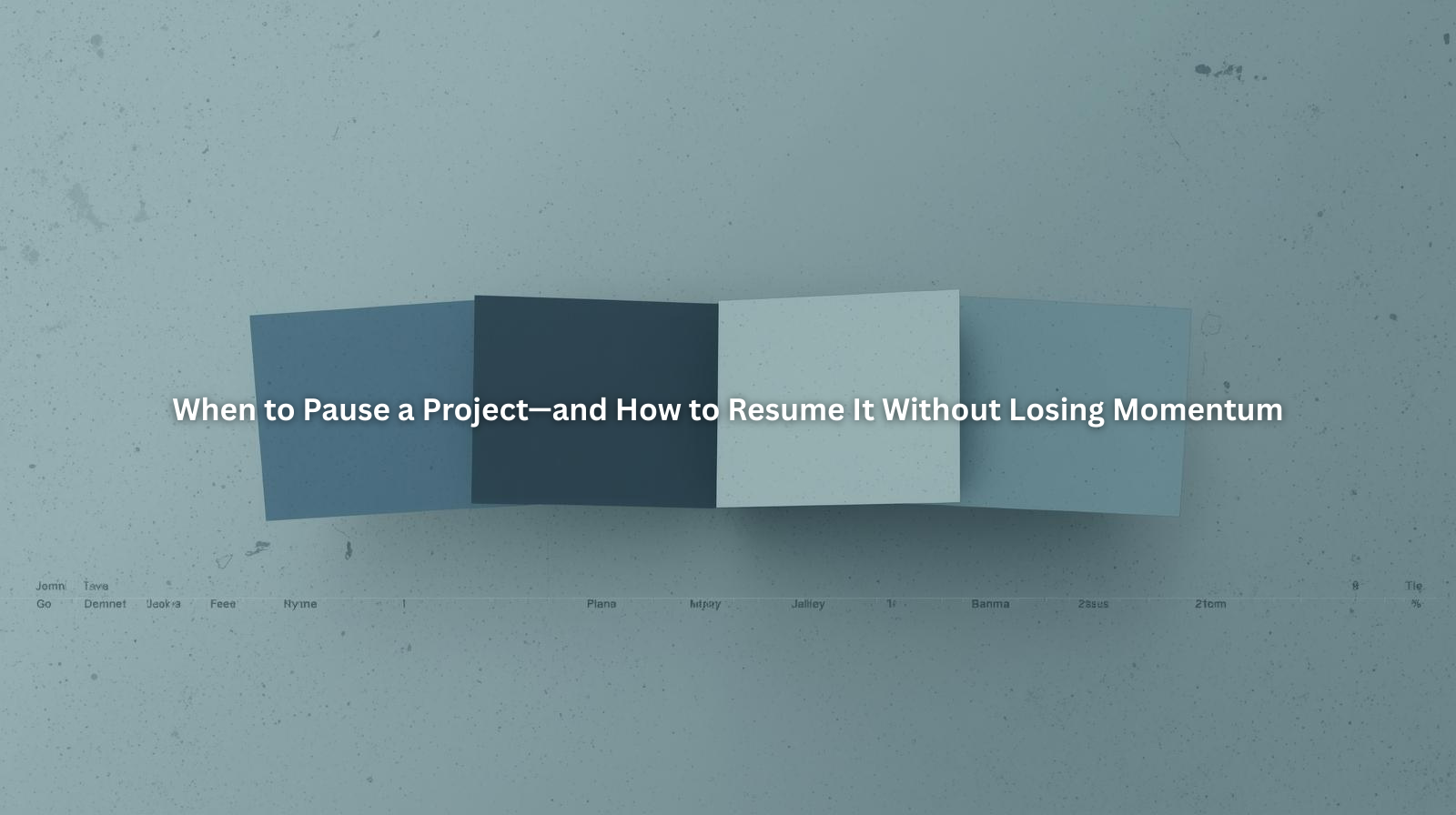Navigating Difficult Client Conversations: A Freelancer’s Guide

Table of Contents
- Why Tough Client Conversations Are Part of the Job
- 5 Common Situations Freelancers Struggle With
- How to Approach Difficult Conversations Professionally
- Conversation Scripts You Can Use Right Now
- How ProjectBook.co Helps You Avoid the Miscommunication Trap
- Frequently Asked Questions (FAQ)
Why Tough Client Conversations Are Part of the Job
Even the best clients—and the best freelancers—sometimes hit rough patches.
Maybe they:
- Ask for extra work without discussing pay
- Miss feedback deadlines and blame you for delays
- Don’t love your first draft and struggle to articulate why
- Push past your boundaries with late-night messages
- Delay payments or change terms after the fact
These conversations are uncomfortable—but necessary.
And the more equipped you are to handle them, the more confident, respected, and successful you’ll be.
Freelancing isn’t just about doing the work—it’s about managing relationships. And that includes navigating hard conversations with clarity and care.

5 Common Situations Freelancers Struggle With
Let’s break down the top sticky client situations and what’s really going on.
1. Scope Creep
“Can you just add this one little thing?”
This is when your client wants extra deliverables, time, or revisions—without adjusting the timeline or budget.
2. Late Payments
“Sorry, our finance team is just slow…”
You’ve done the work. You’ve sent the invoice. But the payment is delayed or MIA.
3. Unclear Feedback
“This just doesn’t feel right… can you make it pop?”
Clients struggle to give constructive feedback, leaving you guessing and revising in circles.
4. Poor Communication
“Hey, just checking in—can we meet again today?”
Frequent last-minute requests or a lack of communication boundaries can quickly lead to burnout.
5. Mismatched Expectations
“I thought you were also managing our social media after launch?”
This is what happens when the initial agreement wasn’t clear—and both sides have different visions of what’s included.
How to Approach Difficult Conversations Professionally
The key to handling these moments? Stay calm, stay clear, and stay kind.
Here’s a framework:
1. Pause and Review
Before reacting, revisit your contract, scope of work, and communication history. What was actually agreed on?
💡 In ProjectBook.co, you can quickly check the scope, deliverables, and notes tied to that client.
2. Lead with Curiosity, Not Conflict
Start the conversation with a question or observation, not an accusation.
“I noticed a few new requests outside the original plan—can we chat about how to handle those?”
3. Be Direct, Not Defensive
Use clear language. Avoid filler words or passive phrases.
Instead of: “I kind of feel like this might be out of scope…”
Try: “This request isn’t included in our original scope, but I’d be happy to add it for an additional fee.”
4. Offer a Path Forward
Always suggest a solution—even if it means drawing a line.
“We can add this in with a fee adjustment, or we can keep the current scope and timeline—let me know which you prefer.”
5. Put It in Writing
Always follow up the conversation with a recap email. Clarity now = fewer problems later.
💡 Use ProjectBook.co to add notes or updates directly inside the project dashboard.

Conversation Scripts You Can Use Right Now
Here are quick, customizable phrases to help you handle common tricky situations with grace.
✍️ Scope Creep
Client: “Can you add a few extra pages to the site?”
You:
“Absolutely! That’s outside the original scope, but I can send a quick quote and updated timeline if you'd like to move forward with those additions.”
💰 Late Payment
Client: “Can I pay next week instead?”
You:
“Thanks for the update. As per our agreement, final payment is due before delivery. Once it’s received, I’ll send over the files!”
🧠 Vague Feedback
Client: “I just don’t love this version.”
You:
“Got it! Could you let me know what’s not working for you? Is it the tone, the design, the layout? Specific feedback helps me get closer to what you need.”
🔁 Too Many Revisions
Client: “Can we try just a few more versions?”
You:
“I’d be happy to continue refining this. Just a heads-up—we’ve reached the included two rounds of revisions. Additional edits are $XX/hour. Want to move forward?”
⏰ Constant Follow-Ups or Pressure
Client: “Can we do another meeting today?”
You:
“Thanks for the note! My schedule is full today, but I’d be happy to book something later this week. Here’s my availability.”
How ProjectBook.co Helps You Avoid the Miscommunication Trap
You don’t need to rely on memory—or your inbox—to manage client expectations.
With ProjectBook.co, you can:
✅ Store the scope of work right inside the project
✅ Add notes after every meeting or call
✅ Track changes and deliverables as they evolve
✅ Document revision rounds so you don’t lose track
✅ Keep everything tied to one client and timeline
No more “he said/she said” confusion. Just calm, clear conversations backed by a system that supports you.

Frequently Asked Questions (FAQ)
What if I’m afraid to push back on a client?
It’s totally normal—but healthy boundaries lead to better relationships. Start with respectful, clear communication. Most clients will appreciate your professionalism.
Should I end a project if a client is too difficult?
If a client consistently disrespects your time, boundaries, or terms, it’s okay to walk away. A good contract and documentation process makes this easier to do gracefully.
How do I avoid these tough conversations in the first place?
Set expectations early—use a clear proposal, contract, and onboarding process. And document everything in a system like ProjectBook.co to prevent misunderstandings.
How can I make conversations feel less confrontational?
Use calm tone, express empathy, and offer solutions. Focus on shared goals: “I want to make sure we’re both happy with the process and outcome.”
Can ProjectBook.co help with client communication?
Yes! It keeps all your project details, feedback, file links, and notes in one place—so you have the context you need for every conversation.
Final Thoughts: Difficult Conversations Are a Sign of a Growing Business
If you’re having more uncomfortable client conversations, take it as a sign:
You’re working with more people. You’re growing. You’re leveling up.
And that means now is the time to build better boundaries, systems, and scripts—so you can handle the bumps like a pro.
Want to support smoother client communication with better organization?
Try ProjectBook.co today and manage every conversation with clarity, confidence, and a well-structured workflow.


